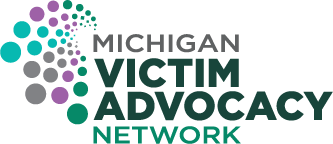COVID-19 Health Equity Podcast Series
Podcast series from NSVRC
COVID-19 and Health Equity: What are the Connections?
In the first episode of our COVID-19 and Health Equity series, NSVRC’s Yolanda Edrington, Louie Marven, and Mo Lewis discuss what they are looking forward to learning throughout the series. They also talk about the connections between health equity, sexual assault prevention, and the COVID-19 pandemic.
How this Van is Meeting Survivors’ Needs During COVID-19
When Black Women’s Blueprint purchased their Sistas Van in 2019, their original plan was to use it as a mobile healing unit that would help survivors of sexual violence access support, healing, and reproductive care. But when the COVID-19 pandemic began, Black Women’s Blueprint saw that there was an increased need for essential supplies like food, clothes, and hygiene products, so the Sistas Van shifted their services to meet the immediate needs of their community.
In the second episode of our COVID-19 and Health Equity series, NSVRC’s Louie Marven talks with Sadé Swift, Sista’s Van Coordinator, about how Sistas Van adapted in the wake of COVID-19 in order to meet their community’s needs.
Adapting Consent Lessons for Online Learning
Online learning is one of the biggest adjustments we’ve had to make due to COVID-19 — not just for students, but also for educators. In the third episode of our COVID-19 and Health series, NSVRC’s Mo Lewis talks with Azure Savage, Monica Schell, and Rebecca Milliman about lessons they have created for online use in Seattle Public Schools during the COVID-19 pandemic.
How an Indigenous Value Helped Slow the Spread of COVID-19
We know that community connectedness is an important part of preventing sexual assault and abuse — but it’s also crucial for preventing all public health issues, including the COVID-19 pandemic.
In the fourth episode of our COVID-19 and Health Equity series, we explore how Fort Lewis College in Durango, Colorado embraced the Navajo value of K’é, which emphasizes kinship and community, as part of their plan to slow the spread of COVID-19. Listen as we talk with Ally Gee, a senior Public Health Major at Fort Lewis College; Dr. Sara Newman, Assistant Professor of Public Health at Fort Lewis College; and Tom Stritikus, President of Fort Lewis College, about how drawing on community values is key to prevention.
How Media Literacy Is Sexual Assault Prevention
In the fifth episode of our COVID-19 and Health Equity series, NSVRC’s Laura Palumbo talks with Tonjie Reese, a Detroit native, preventionist, storyteller, and creative, about why media literacy is so important and how to shift our approaches to prevention during this pandemic.
Safe Space? Brave Space? Finding an Alternative
The terms “safe space” and “brave space” are used often in the movement to end sexual violence, but each has their limitations and drawbacks. So, inspired by adrienne maree brown’s Emergent Strategy: Shaping Change, Changing Worlds, the North Carolina Coalition Against Sexual Assault (NCCASA) proposed a new framework called Emergent Space that would create spaces of growth, learning, and sharing of marginalized experiences.
In the sixth episode of our COVID-19 and Health Equity series, listen as NSVRC’s Louie Marven talks with NCCASA’s Montia Daniels, Shareen El Naga, and Chris Croft about their new guide, Emergent Space.
In the final episode of our COVID-19 and Health Equity series, NSVRC’s Yolanda Edrington, Louie Marven, and Mo Lewis discuss what they learned during the series, what touched their hearts, and how their perspectives have shifted.
